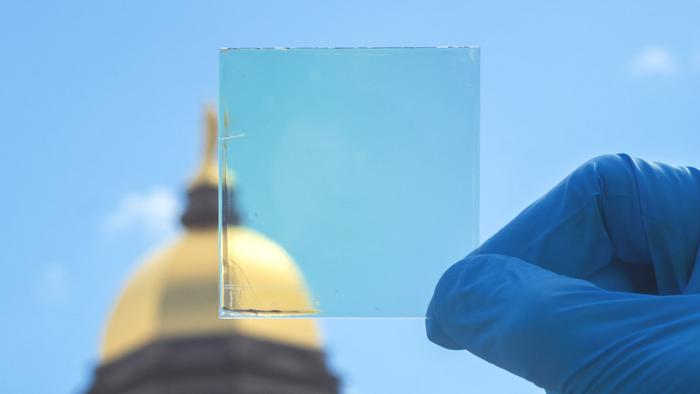A Glimpse into the Future: Natural Light without Unwanted Heat
Imagine a world where you can bask in natural light and scenic views without battling uncomfortable heat. Researchers at the University of Notre Dame have brought us closer to this reality with the development of revolutionary window coating technology.
Selective Filtering for Optimal Comfort
This innovative coating acts as a selective filter for sunlight, efficiently blocking ultraviolet and infrared light – the parts of the spectrum responsible for generating heat – while allowing visible light to pass through unimpeded. This translates to a cooler interior environment without compromising the clarity of your view. Additionally, the application of this coating can be integrated into pre-existing windows or vehicles.
One of the key strengths of this technology is its consistency. Unlike traditional window treatments that might lose effectiveness depending on the sun’s angle, this coating maintains its heat-blocking properties throughout the day, from sunrise to sunset. This makes it a perfect solution for year-round comfort, regardless of the building’s orientation.
Pioneering the Path to Efficiency
To arrange the layers into the most efficient configuration, optimizing the transmission of visible light while minimizing the passage of heat-producing wavelengths, the team employed quantum computing, particularly quantum annealing. They then validated their findings through experimental verification.
The potential impact of this development is significant. By reducing unwanted heat gain, this coating can lead to a substantial decrease in air conditioning usage, particularly in hot climates. Estimates suggest a potential reduction of cooling costs by more than a third.
The applications for this technology extend beyond residential buildings. It can be incorporated into commercial buildings, office spaces, and even automobiles. Imagine enjoying a comfortable commute without the need for blasting air conditioning. It promises not only increased comfort but also significant energy savings, making it a win-win for both residents and the environment.







